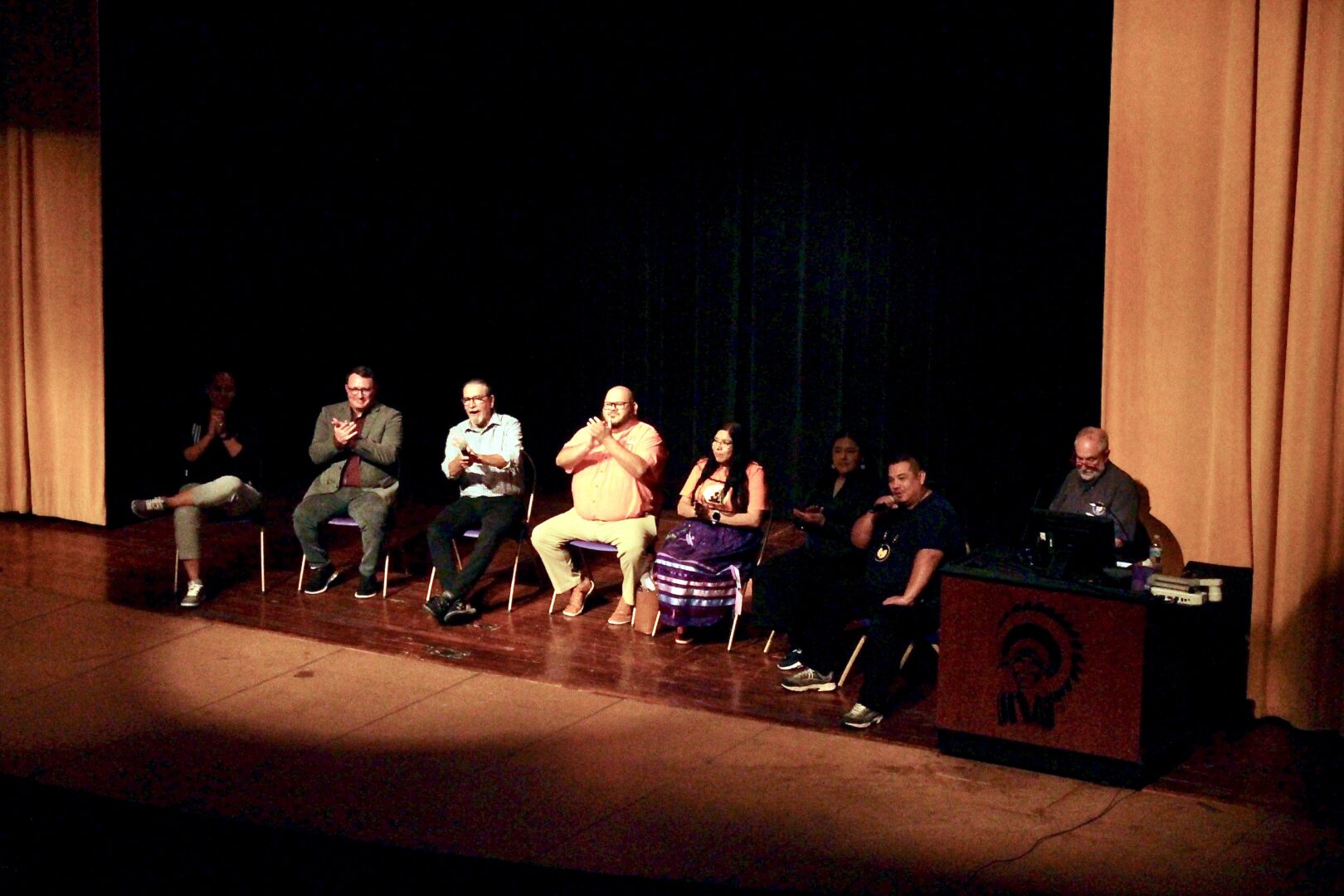
By Tory Grassrope
The Indian Leader
LAWRENCE, Kansas — Indigenous scholars, educators, and community leaders gathered Sept. 12 at the Haskell Auditorium for a panel titled Honoring Truth, which focused on the importance of accurate Native representation in culture, media, and education.
The panelists included Melissa Peterson, Alex Red Corn, Daniel Wildcat, Mackie Moore, Rhonda LeValdo, Allison Levering and Jimmy Beason. The discussion was moderated by Eric Anderson.
The event featured a range of perspectives from Haskell Indian Nations University faculty, students, and alumni, as well as Native leaders from across the region. Panelists responded to questions such as: What does accurate representation mean to you as a tribal citizen? Why is it important to have truthful and fair portrayals of Native American communities? In what ways can misrepresentation negatively impact Native individuals and communities? How can media be used as a tool for cultural preservation, empowerment, and education about Indigenous communities?
Jimmy Beason, faculty in the Indigenous and American Indian Studies Department at Haskell, said Native educators play a key role in reclaiming narratives.
“I think as Native educators, it’s also a responsibility in those spaces to provide the answers as best we can based on our own experience, capture those narratives, take control of the narrative,” Beason said.
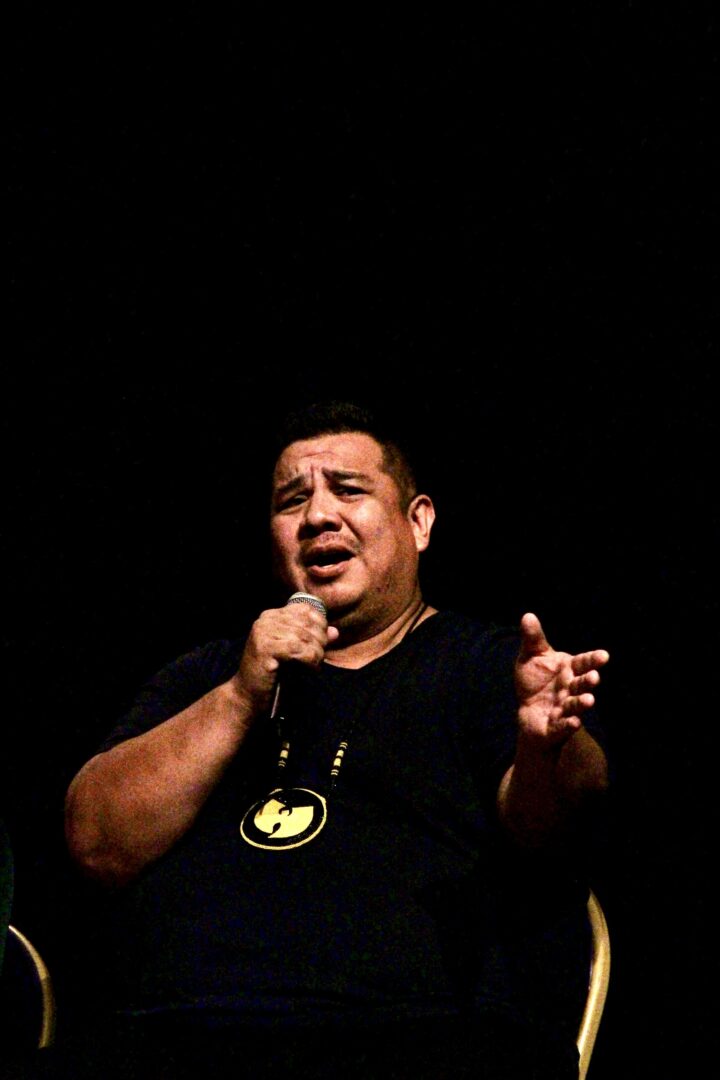
He added that Native communities are still working to reconnect with their identities following centuries of colonization and cultural erasure.
“We need to have an accurate understanding of who we are,” he said. “Because of colonization, cultural erasure, boarding schools, many in our community have been disconnected. And we’re still trying to get reconnected with that.”
Allison Levering, a Haskell student, Winnebago Tribe of Nebraska citizen, and president of The Indian Leader, spoke on her journey into journalism.
“With news journalism I didn’t have any knowledge of that in the beginning, but I did know who I was as a Hoocak (Winnebago) person… those kind of values and responsibilities that i learned at home,” Levering said. “That was enough for me to find a passion in telling native stories accurately and the teachings of storytelling.”
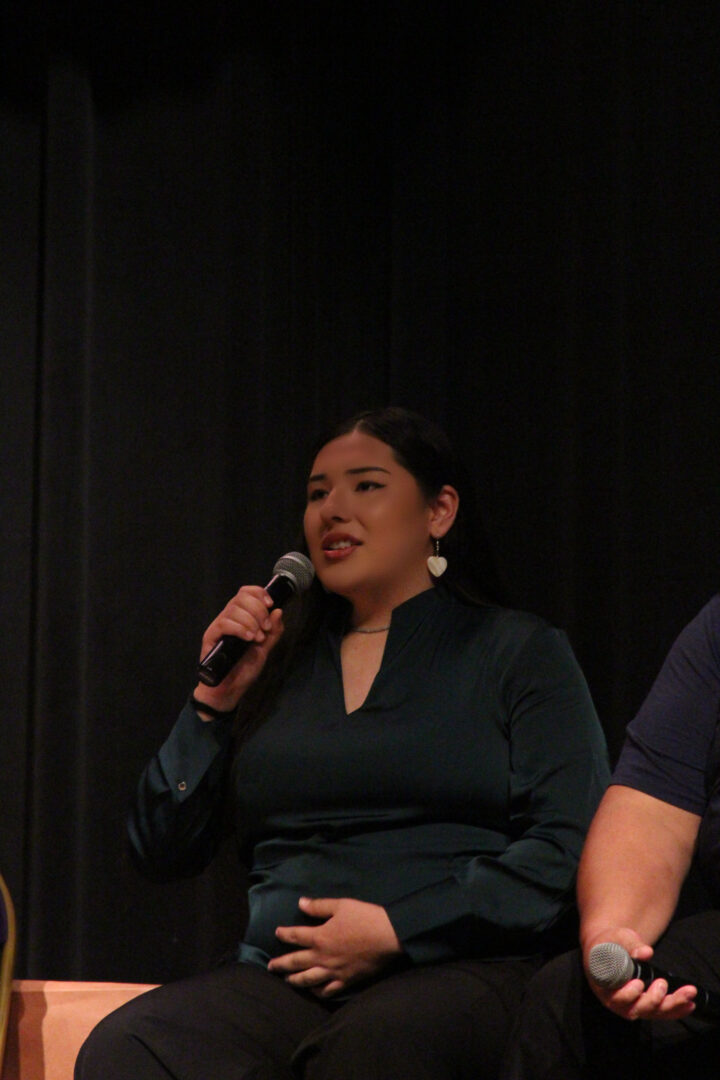
She emphasized the need for Native representation in all areas of media.
“We cover the good, the bad, the funny, the exciting, and that’s really something that I’d like to see more in the mainstream society,” she said. “It should be a normal thing to see our people in these positions to ensure accuracy.”
Rhonda LeValdo, Acoma Pueblo, co-founder of Not In Our Honor, reflected on her activism against Native mascots and stereotypes in sports.
“The misrepresentation of who we are as a people … does not represent my people from the Southwest,” LeValdo said. “It should be something that represents all of our Haskell community.”
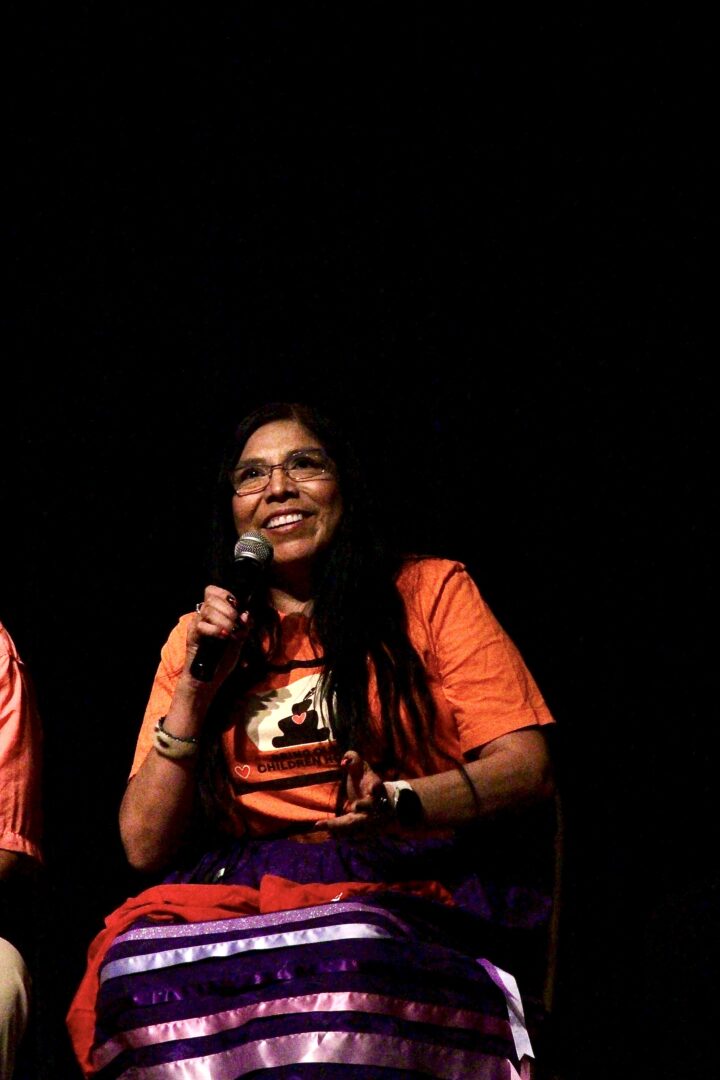
She added that the long struggle has been both educational and exhausting.
“It’s like an educational point for me to try and educate others on why we do this,” LeValdo said. “But it’s also very difficult because we have to face not only non-Native people … but we also face many people who get upset with what we do.”
Mackie Moore, interim Haskell president and Cherokee Nation citizen, stressed the importance of Native people taking leadership roles.
“One thing that as a Native population, minority in general, when you have opportunities you’ve got to take the seat at the table,” Moore said. “And it’s not just your seat, it’s the whole community’s just behind it.”
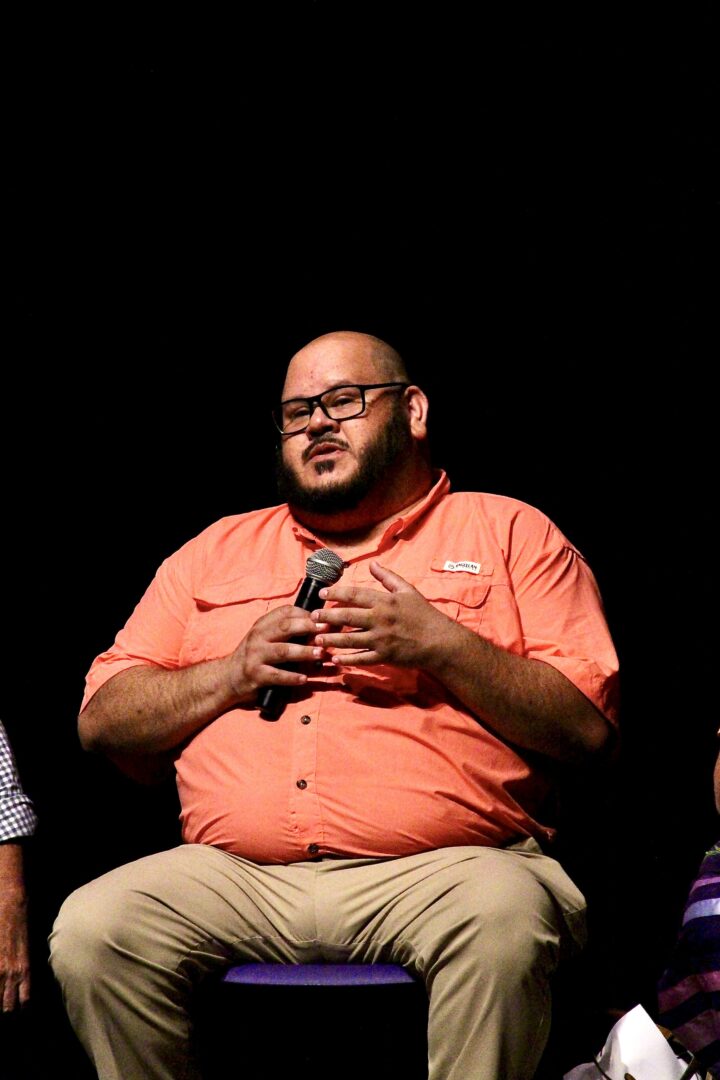
Daniel Wildcat, professor, author and member of the Yuchi Tribe of the Muscogee Nation of Oklahoma, challenged the racialized ways Native peoples are often viewed.
“Too many people think of tribal people racially … and they tend to not understand the incredible cultural diversity that exists among the first people,” Wildcat said.
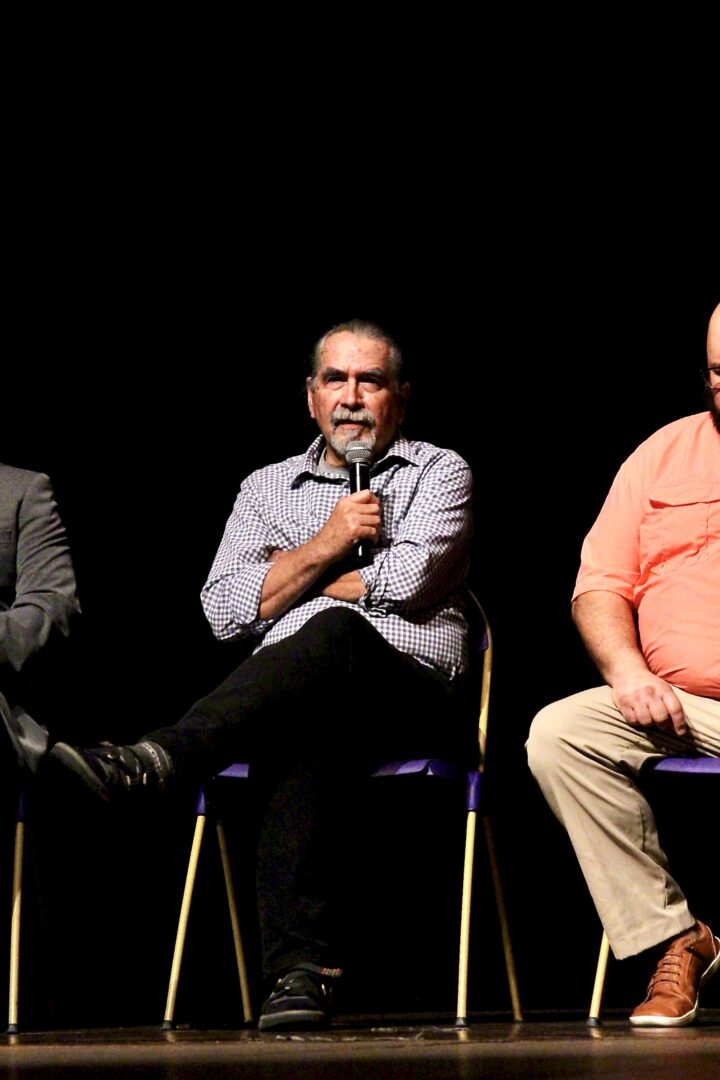
He added that technology could play a powerful role in reshaping narratives.
“If we can get technology in the hands of these young, bright, energetic people, I think that can be a very powerful thing,” he said.
Alex Red Corn, a University of Kansas professor and associate vice chancellor for sovereign partnerships and Indigenous initiatives, highlighted gaps in Native education.
“I started learning through the school system … narrow stereotypes, and misunderstandings,” Red Corn said. “Representation in the work that I do, I like to talk about Indigenous education for, about, and with Native nations.”
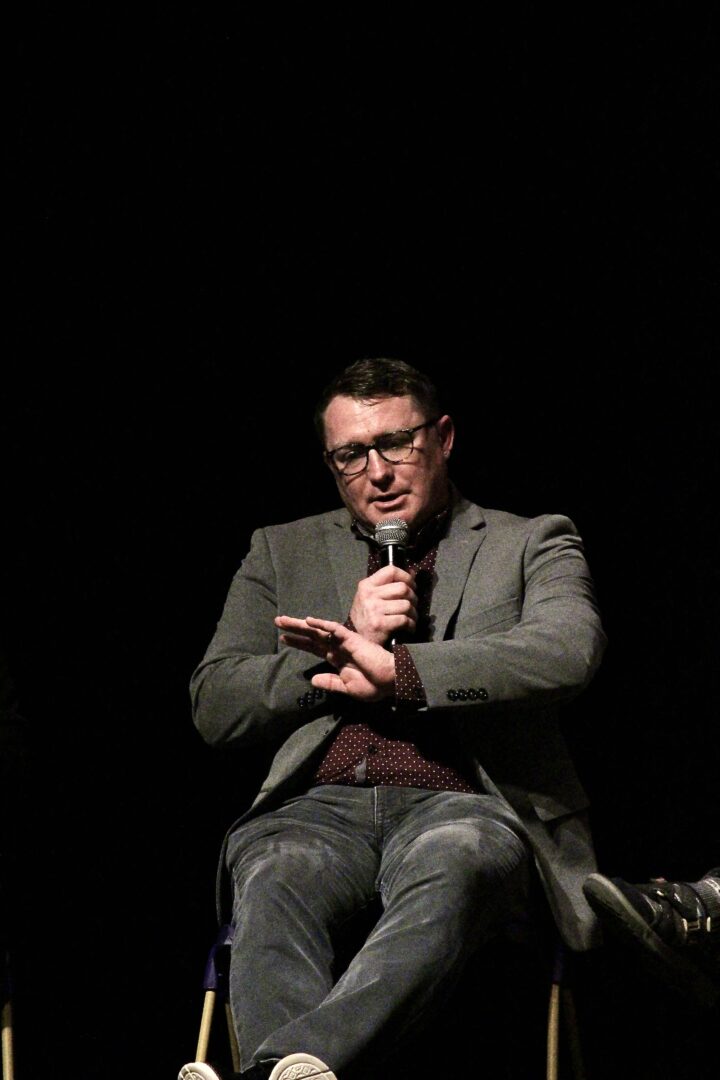
Melissa Peterson, Navajo Nation citizen, spoke about visibility and community-building through events like powwows.
“We’ve got to go further upstream and prioritize relationships first and relationships built around what the purpose is,” Peterson said.
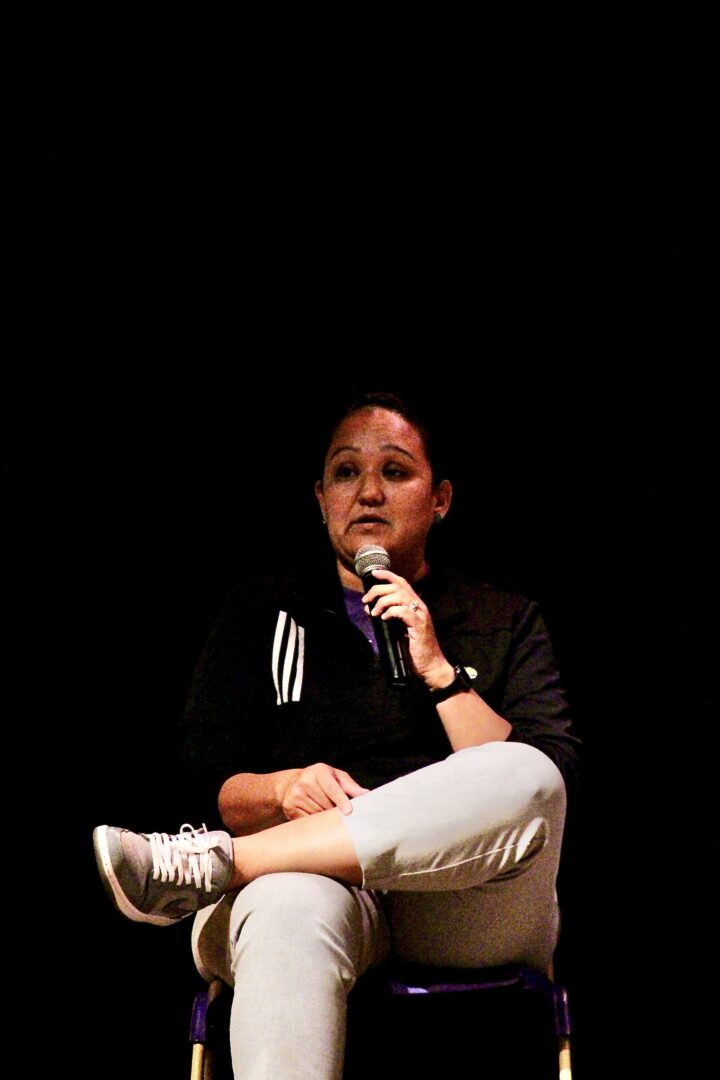
She said KU’s Indigenous Cultures Festival, centered around powwow, serves as both celebration and education.
“Most of us don’t even powwow, so we have to ask those that do, who have the expertise,” Peterson said. “But we’ve built the Indigenous Cultures Festival around the powwow to educate and bring presenters, but also to do workshops.”
The panel showcased the diverse voices and leadership of Indigenous communities, urging continued efforts in reshaping education, media, and cultural preservation.
